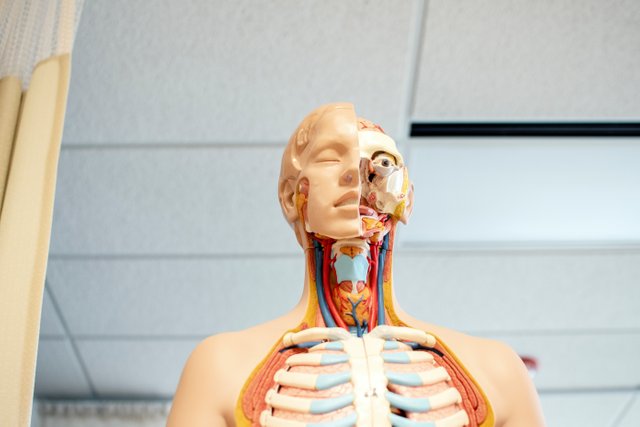Fascinating Facts About the Human Body

Introduction
The human body is an extraordinary marvel of nature, capable of performing intricate functions and adapting to various environments. From the complex workings of the brain to the incredible strength of our bones, the human body is a constant source of fascination and awe. In this blog post, we will explore some of the most intriguing facts about the human body that will leave you amazed by its complexity and ingenuity.
1: The Human Brain: A Supercomputer in Disguise
The human brain is often hailed as the most complex organ in the body. It weighs about 3 pounds (1.4 kilograms) and consists of approximately 86 billion neurons. It is estimated that the brain can process information at a speed of 1,000,000,000,000 bits per second, making it more powerful than any supercomputer we have built to date. The brain is responsible for controlling our thoughts, movements, emotions, and memories, making it a truly remarkable organ.
2: The Power of Bones
Bones are not just solid structures that provide support and protection; they are also living tissues that constantly remodel and regenerate. One of the most astonishing facts about bones is their strength. A typical human bone is stronger than concrete, with the ability to withstand loads up to 1,000 kilograms (2,205 pounds). Additionally, bone marrow, found inside our bones, plays a vital role in producing red and white blood cells, which are crucial for our immune system and oxygen transportation.
3: The Human Eye: A Perfect Camera
The human eye is often referred to as nature's camera. It is an incredibly intricate organ capable of capturing and processing visual information with astonishing precision. The eye contains over 2 million working parts and can distinguish between 10 million different colors. Interestingly, our eyes are responsible for 80% of the information we perceive from the world around us, making them our primary sense organ.
4: The Miraculous Heart
The heart is an awe-inspiring organ that tirelessly pumps blood throughout the body, ensuring the delivery of oxygen and nutrients to every cell. On average, the human heart beats around 100,000 times per day, pumping about 2,000 gallons (7,571 liters) of blood. Over a lifetime, it pumps enough blood to fill three Olympic-sized swimming pools. Despite its constant activity, the heart manages to sustain itself as a muscle, working relentlessly from the moment we are born until our last breath.
5: The Complexity of the Digestive System
The digestive system is an intricately designed network responsible for breaking down the food we eat and absorbing essential nutrients. Did you know that the digestive system houses over 100 trillion bacteria? These beneficial bacteria, known as gut flora, play a vital role in digestion, immune function, and even mental health. Furthermore, the small intestine, despite its name, is roughly 22 feet (6.7 meters) long, allowing for the efficient absorption of nutrients.
6: The Powerhouse Within: Mitochondria
Mitochondria are often referred to as the powerhouses of our cells. These tiny organelles produce the energy required for cellular functions through a process called cellular respiration. Astonishingly, mitochondria have their own DNA and reproduce independently of the cell. This intriguing fact suggests that mitochondria were once free-living organisms that formed a symbiotic relationship with our cells billions of years ago, leading to the evolution of complex life forms.
7: The Skin: Our Versatile Protective Barrier
Our skin, the largest organ of the body, serves as a versatile protective barrier against the external environment. It weighs about 6 pounds (2.7 kilograms) and covers an area of approximately 22 square feet (2 square meters). One intriguing fact about the skin is its ability to heal itself. When we get a cut or a scrape, the skin initiates a complex process of cell regeneration and tissue repair to close the wound and restore its integrity.
8: The Respiratory System: Oxygenating Every Cell
The respiratory system, comprised of the lungs and airways, plays a crucial role in supplying oxygen to the body's cells. On average, we take about 20,000 breaths per day, inhaling approximately 11,000 liters of air. The surface area of the lungs is expansive, roughly the size of a tennis court, allowing for efficient exchange of oxygen and carbon dioxide. This incredible system ensures that every cell in our body receives the oxygen it needs to carry out its functions.
9: The Immune System: Our Defense Against Invaders
The immune system is a complex network of cells, tissues, and organs that protects our body against harmful pathogens, such as bacteria, viruses, and parasites. One astonishing fact about the immune system is its ability to recognize and remember specific pathogens it has encountered before. This memory allows our immune system to mount a faster and more targeted response upon subsequent encounters, providing us with long-term protection against diseases.
10: The Muscular System: Powering Our Movements
The muscular system is responsible for enabling movement and maintaining posture. There are over 600 muscles in the human body, ranging from tiny ones in the eyes to the large muscles in the legs and back. One fascinating fact about muscles is their exceptional strength. For instance, the masseter muscle, which is responsible for chewing, can exert a force of up to 200 pounds (90 kilograms) when we bite down. Muscles also have an incredible endurance capacity, as demonstrated by long-distance runners who can run for hours without tiring.
Conclusion
The human body is an extraordinary creation that continues to amaze scientists and researchers alike. From the complexity of the brain to the strength of our bones and the intricacy of our organs, our bodies are a testament to the wonders of nature. Understanding these fascinating facts about the human body not only deepens our appreciation for its remarkable design but also highlights the importance of taking care of ourselves and nurturing the awe-inspiring machine we inhabit.